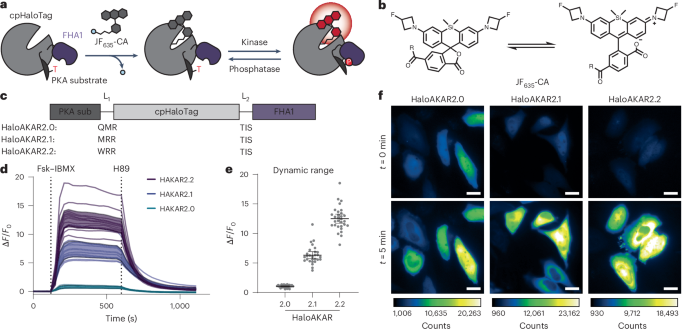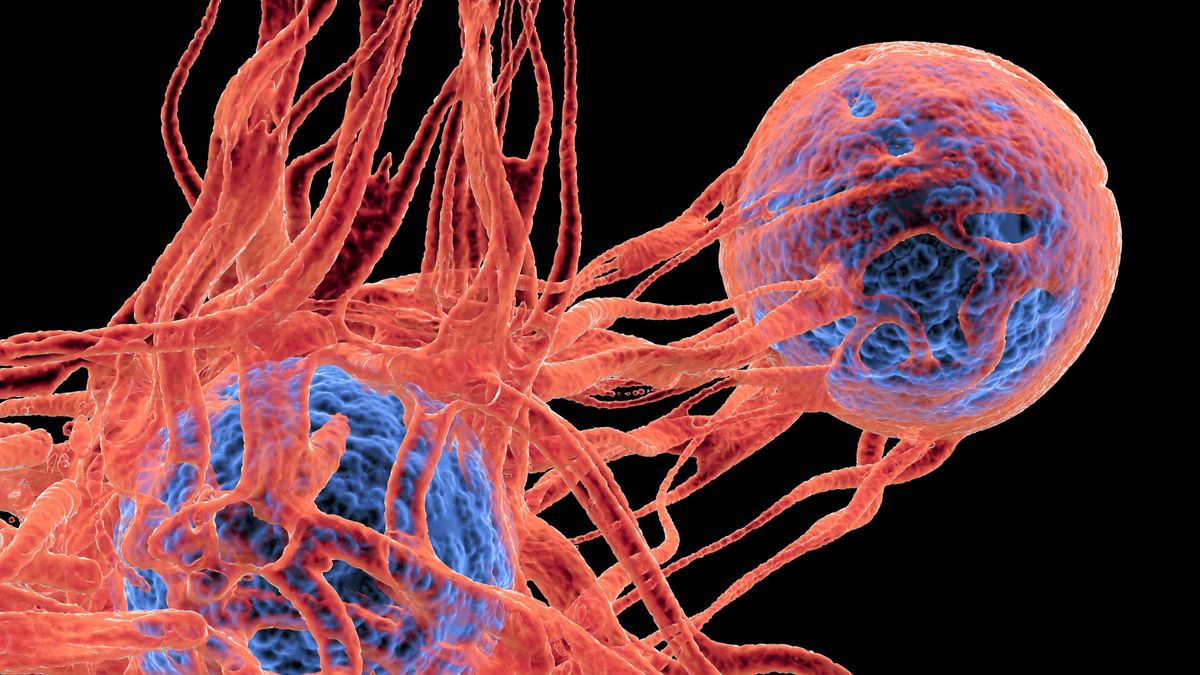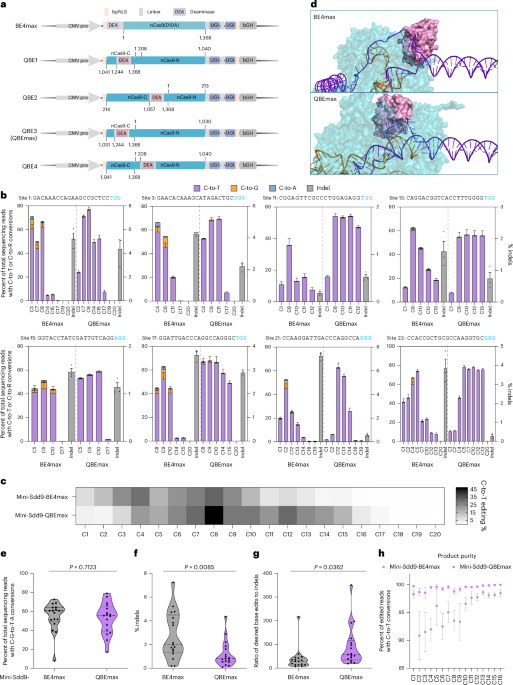Now Reading: Far-Red Biosensors Unlock Super-Resolved Imaging of Cellular Signaling Networks
-
01
Far-Red Biosensors Unlock Super-Resolved Imaging of Cellular Signaling Networks
Far-Red Biosensors Unlock Super-Resolved Imaging of Cellular Signaling Networks

Quick Summary
- A new scientific study has focused on advanced genetic and imaging techniques, involving plasmids and biosensors to illuminate cellular mechanisms.
- Plasmids encoding different genetically engineered biosensors are deposited on Addgene, facilitating their accessibility for research usage.
- The findings feature advanced tools such as clathrin-coated pit analysis in MATLAB, ImageJ macros, R scripts for image processing, and Python-based Jupyter notebooks for lattice light-sheet data. Software tools are available via GitHub repositories linked in the source.
- Data supporting the study can be requested alongside a stable cell line generated during the research.
Read more: Source link
Indian Opinion Analysis
the study represents notable progress in biotechnology by developing genetically encoded fluorescent biosensors that can visualize cellular activities with precision. Given its emphasis on accessibility (via Addgene/GitHub), it could foster global collaborations within bioengineering and computational biology domains.
For india-a country steadily increasing investments in biotechnology and pharmaceuticals-tools like these could propel advancements in drug revelation or diagnostics.Universities or biotech firms might leverage such innovations to strengthen India’s position as a hub for high-tech bio-research industries while providing training opportunities that align with global standards.
End-user accessibility of these research tools seems promising; though, actual implications would depend on local institutional adoption rates and industry readiness to integrate novel methodologies into ongoing workflows.
Read more: Source linkQuick Summary
- The raw text presented does not contain clear information about India or an explicit event, leaving ambiguity regarding its relevance to indian news.
- The content primarily lists references to scientific studies related to bioimaging, fluorophores, biosensors, and chemigenetic indicators published in journals like Nature Chemistry Biology, ACS Chemistry Biology, and others.
Indian Opinion Analysis
The provided text is focused on advanced scientific research in biosensing and imaging technologies. While it holds importance for global scientific progress, its relevance to specific Indian contexts or policies remains unclear from the given details. If interpreted through a national lens, such innovations may guide India’s investments in biotechnology research and infrastructure. India’s science community could benefit by fostering global collaborations reflected here.
For further exploration: LinkQuick Summary:
- This input primarily contains references to scientific articles from various journals such as “Nature Communications,” “Scientific Reports,” and “eLife.”
- The listed studies relate significantly to molecular biology, focusing on intracellular signaling mechanisms, fluorescent probes, and microscopy.
- Topics include genetically encoded calcium indicators,cAMP imaging technologies,and applications for live-cell analysis.Research tools like FluoSTEPs and HaloAKAR are highlighted for monitoring cellular microdomains effectively.
Indian Opinion Analysis:
the references presented underline advancements in biotechnology with a potential global impact on healthcare and diagnostics. india’s vibrant biotech sector could harness these developments in cellular microscopy and biosensing technologies to address critical areas like drug discovery or personalized medicine. Strengthening collaborations between Indian research institutions and international counterparts is pivotal to expedite innovation adoption locally. Such advancements align with India’s vision of transforming into a global leader in science-backed solutions while ensuring readiness in cutting-edge medical applications.
Read More: Not applicable; no direct article link provided within this context segment.It seems you have provided a section of references and citations from scientific research articles, not raw text for a typical news article about India.Please clarify or share the appropriate information to craft the requested sections with specific details about India-related news.Quick Summary:
- Content includes multiple references to articles and studies across fields such as biochemistry,cell signaling,endocrinology,and molecular biology.
- Citations range from prostaglandin receptors to glucagon-like peptide mechanisms relevant to health and drug susceptibility research.
- Studies published by journals like Nature Communications,Molecular Metabolism,Journal of Biological chemistry,etc.,with abstracts linked for further exploration about receptor functions or imaging techniques in biology.
Indian Opinion Analysis:
While the raw content does not directly relate to Indian-specific contexts or national implications, these highly specialized scientific studies contribute globally towards advancements in healthcare research and technologies. India’s growing emphasis on bioscience innovation positions it as a potential player in leveraging such findings for public health applications like diabetes management or drug safety. The interconnected nature of global academia underscores that developments anywhere can positively influence medical policies, pharmaceutical industries, or patient care standards across nations including India.
Read more: Source Linkquick Summary
- The information provided includes references to scientific studies focusing on GPCR (G-protein-coupled receptor) signaling, drug discovery, and their implications for health and disease.
- Specific details examine molecular mechanisms such as calcium mobilization mediated by GPCRs (source: Pfeil et al., 2020).
- Trends in drug discovery related to GPCR targets have been highlighted (source: Hauser et al.,2017). This includes advancements in agents, targets, and medical applications.
- Other studies explore technologies like fluorescent protein databases (fpbase) and ImageJ tools aimed at enhancing biological imaging.
- Research cited also covers the establishment of pancreatic β-cell lines for insulin secretion analysis (Miyazaki et al.,1990),and also microscopy techniques enabling high spatial resolution of cellular activities.
Indian Opinion analysis
The referenced studies underscore India’s possibility to focus research investments on advanced biomedical fields such as detailed receptor signaling pathways or high-resolution imaging. By expanding capabilities in these highly specialized areas,India could improve capacity in developing precision medicines and contribute meaningfully to global challenges like diabetes management or rare diseases. A push towards fostering collaborations between Indian institutes and international organizations mentioned here can strengthen technological transfers for public health solutions. Neutrality must be maintained; however, emphasis on calculated investment is logical given India’s growing bio-research ambitions.
Link for Read More:
SourceQuick Summary:
- Researchers have developed and characterized HaloAKAR biosensors targeted to various subcellular regions for improved monitoring of PKA activity using advanced imaging techniques.
- Experiments were carried out with HeLa and HEK293T cells, both in 2D culture and 3D spheroid models, to measure dynamic range and fluorescence responses under different stimulation conditions.
- The study utilized cutting-edge microscopy methods like lattice light-sheet microscopy, spinning-disc confocal microscopy, FLIM (fluorescence lifetime imaging), STED super-resolution microscopes, among others.
- This research involved contributions from multiple institutions including the University of California San Diego (UCSD) and the University of Southern California (USC). Various national grants funded this work. No conflicts of interest were declared by the authors.
Indian Opinion Analysis:
This work demonstrates notable advancements in bioimaging tools that enhance understanding at molecular levels within live cells or tissues. India’s recent focus on bolstering biotech capabilities aligns well with such evolving technological paradigms. With India’s increasing investment in cell-based biosensor startups and high-end imaging technologies within its academic labs-the methodology showcased here could contribute valuable insights for fields such as regenerative medicine or pharmaceutical R&D once localized implementation frameworks are created.
Additionally collaborative multi-institutional studies similar bridge unexplored fields warrant! between Indic govt Policy académica University’s ownQuick Summary
- Springer Nature published an article titled “Far-red chemigenetic kinase biosensors enable multiplexed and super-resolved imaging of signaling networks.”
- The research explores advanced biosensors in the far-red wavelength spectrum,developed for observing cellular signaling networks.
- These chemigenetic kinase biosensors allow for multiplexed and high-resolution imaging techniques in biological studies.
- The study suggests new possibilities for understanding complex signaling mechanisms within cells, with applications in biotechnology and medicine.
- authored by Michelle S. Frei et al., the article was received on June 21, 2024, accepted on March 18, 2025, and published on April 21, 2025.
Indian Opinion Analysis
this advancement may hold significant implications for India’s growing biotechnology sector and its focus on innovative medical technologies. Advances like far-red biosensors could enable Indian researchers to conduct more precise studies of cellular functions related to diseases-a critical step toward improving diagnostics or therapeutic treatments in emerging areas like personalized medicine or precision healthcare initiatives in India. With increasing government support for science and technology development under programs such as the Make-in-India initiative focused on R&D ecosystems,this research could inspire local innovations or collaborative efforts globally.

























